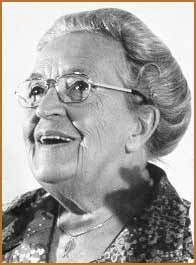 My good friend Nate Winters from Pennsylvania has just been here for a really good but all too quick visit. Among lots of other things, he mentioned that his family has been reading "The Hiding Place" together. Oddly, I have been thinking about Corrie Ten Boom lately too. Nate had no knowledge that I'd been revisiting Corrie Ten Boom, nor I him. I had already gotten this post together before Nate came...just hadn't published it yet. Kind of a cool-ish thing...
My good friend Nate Winters from Pennsylvania has just been here for a really good but all too quick visit. Among lots of other things, he mentioned that his family has been reading "The Hiding Place" together. Oddly, I have been thinking about Corrie Ten Boom lately too. Nate had no knowledge that I'd been revisiting Corrie Ten Boom, nor I him. I had already gotten this post together before Nate came...just hadn't published it yet. Kind of a cool-ish thing...Anyway, I'm freshly shocked every time I remember this story she tells about the power of God in forgiveness. During WWII, Corrie had been interned in a German concentration camp because she and her family had helped hide Jews from the Nazis in her home in Holland. Now she was back in Germany to speak a message of grace and salvation and forgiveness...
"It was 1947, and I’d come from Holland to defeated Germany with the message that God forgives. It was the truth that they needed most to hear in that bitter, bombed-out land, and I gave them my favorite mental picture. Maybe because the sea is never far from a Hollander’s mind, I liked to think that that’s where forgiven sins were thrown. “When we confess our sins,” I said, “God casts them into the deepest ocean, gone forever. And even though I cannot find a Scripture for it, I believe God then places a sign out there that says, ‘NO FISHING ALLOWED.’ ”
The solemn faces stared back at me, not quite daring to believe. And that’s when I saw him, working his way forward against the others. One moment I saw the overcoat and the brown hat; the next, a blue uniform and a cap with skull and crossbones. It came back with a rush— the huge room with its harsh overhead lights, the pathetic pile of dresses and shoes in the center of the floor, the shame of walking naked past this man. I could see my sister’s frail form ahead of me, ribs sharp beneath the parchment skin. Betsie, how thin you were! That place was Ravensbruck, and the man who was making his way forward had been a guard— one of the most cruel guards.
Now he was in front of me, hand thrust out: “A fine message, Fraulein! How good it is to know that, as you say, all our sins are at the bottom of the sea!” And I, who had spoken so glibly of forgiveness, fumbled in my pocketbook rather than take that hand. He would not remember me, of course— how could he remember one prisoner among those thousands of women? But I remembered him. I was face-to-face with one of my captors and my blood seemed to freeze.
“You mentioned Ravensbruck in your talk,” he was saying. “I was a guard there.” No, he did not remember me. “But since that time,” he went on, “I have become a Christian. I know that God has forgiven me for the cruel things I did there, but I would like to hear it from your lips as well. Fraulein,”—again the hand came out—”will you forgive me?”
And I stood there—I whose sins had again and again to be forgiven—and could not forgive. Betsie had died in that place. Could he erase her slow terrible death simply for the asking? It could have been many seconds that he stood there—hand held out—but to me it seemed hours as I wrestled with the most difficult thing I had ever had to do.
For I had to do it— I knew that. The message that God forgives has a prior condition: that we forgive those who have injured us. “If you do not forgive men their trespasses,” Jesus says, “neither will your Father in heaven forgive your trespasses.” And still I stood there with the coldness clutching my heart.
But forgiveness is not an emotion— I knew that too. Forgiveness is an act of the will, and the will can function regardless of the temperature of the heart. “Jesus, help me!” I prayed silently. “I can lift my hand. I can do that much. You supply the feeling.” And so woodenly, mechanically, I thrust out my hand into the one stretched out to me. And as I did, an incredible thing took place. The current started in my shoulder, raced down my arm, sprang into our joined hands. And then this healing warmth seemed to flood my whole being, bringing tears to my eyes.
“I forgive you, brother!” I cried. “With all my heart!” For a long moment we grasped each other’s hands, the former guard and the former prisoner. I had never known God’s love so intensely, as I did then. But even then, I realized it was not my love. I had tried, and did not have the power. It was the power of the Holy Spirit. (Corrie ten Boom, Tramp for the Lord (Berkley, 1978), pp. 53-55)

Praise God! Our God is great - and greatly to be praised.
ReplyDeleteI think I have resisted long enough... a movement, even a seemingly mechanical one is needed. My injustice is silly in comparison.
ReplyDeleteGod is good. Thank you.
Tim thanks for reading. Sounds like you have a soft heart............
ReplyDelete